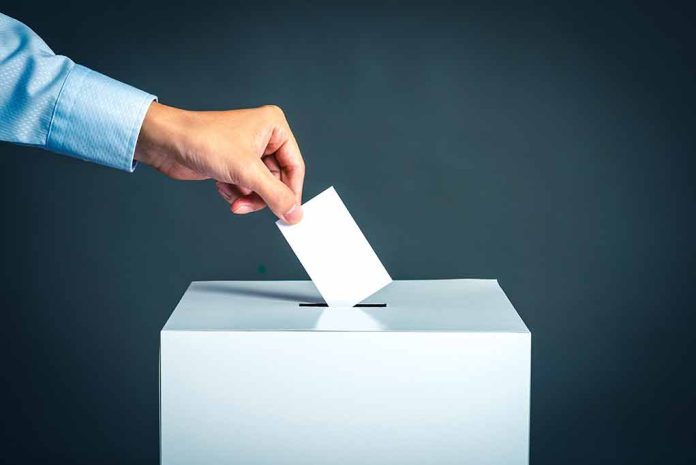
The Supreme Court unanimously allows a constitutional challenge to Virginia’s lifetime voting ban for felons to proceed, setting up a potentially landmark case on voting rights that could impact hundreds of thousands of disenfranchised citizens.
Key Takeaways
- The Supreme Court rejected Virginia’s request to dismiss a lawsuit challenging the state’s lifetime voting ban for convicted felons.
- The justices’ decision was unanimous, with no dissents from the unsigned order.
- The lawsuit, O’Bannon v. King, backed by the ACLU, argues that permanently denying voting rights to felons violates constitutional principles.
- The court did not explain allowing the case to proceed.
- Virginia is one of several states with strict felony disenfranchisement policies that have faced increasing legal challenges.
Supreme Court Advances Challenge to Virginia’s Felon Voting Ban
In a significant development for voting rights advocates, the Supreme Court has refused to dismiss a lawsuit challenging Virginia’s policy of permanently stripping voting rights from citizens with felony convictions. The court’s unsigned order, issued without dissent, allows the constitutional challenge known as O’Bannon v. King to move forward in lower courts. This decision represents a preliminary victory for plaintiffs Tati Abu King and Toni Heath Johnson, whose case is supported by the American Civil Liberties Union (ACLU).
I’ve previously criticized amicus briefs that get facts and studies wrong, misleading courts in the process. Let me take to task one from a group I otherwise support, the @ReasonFdn .
The en banc Fifth Circuit is hearing Hopkins v. Hosemann, a SPLC suit against Mississippi over…
— tedfrank (@tedfrank) December 19, 2023
Constitutional Questions at Stake
The plaintiffs argue that Virginia’s lifetime disenfranchisement policy violates fundamental constitutional principles, forcing hundreds of thousands of citizens into permanent political exclusion. King’s personal experience highlights the impact of these policies – after having his rights restored following a robbery conviction, he faced disenfranchisement again after a subsequent offense. Virginia defended its policy by arguing that the Constitution explicitly allows states to deny voting rights for “participation in rebellion, or other crime,” as stated in the 14th Amendment.
Virginia’s Policy in National Context
Virginia stands among a diminishing number of states that maintain strict felony disenfranchisement policies. While most states have moved toward more lenient approaches in recent decades, Virginia’s constitution still requires the governor to personally restore voting rights to former felons on an individual basis. This system has created significant disparities, with critics arguing it disproportionately impacts minority communities. The case has drawn attention from both conservative and liberal legal analysts who recognize its potential to reshape voting rights jurisprudence.
Implications for Future Elections
The timing of this case carries significant political implications. With closely contested elections becoming the norm in Virginia, the potential restoration of voting rights to hundreds of thousands of former felons could alter the political landscape. Conservative lawmakers in Virginia argue that the policy upholds accountability for serious crimes, while progressive advocates frame it as a civil rights issue. By allowing this challenge to proceed rather than dismissing it outright, the Supreme Court has signaled its willingness to address these long-standing tensions between state authority and voting rights.
Next Steps in the Legal Battle
The case will now be returned to the lower courts for continued litigation on the merits of the constitutional claims. Legal experts anticipate a lengthy process that could ultimately lead to the case being returned to the Supreme Court for a final ruling on the constitutionality of lifetime felony disenfranchisement. Virginia’s governor and attorney general will have to decide whether to continue defending the policy or seek legislative solutions to reform the state’s approach to voting rights restoration. Regardless of the outcome, this case represents a significant moment in the ongoing national debate over who deserves access to the ballot box.




